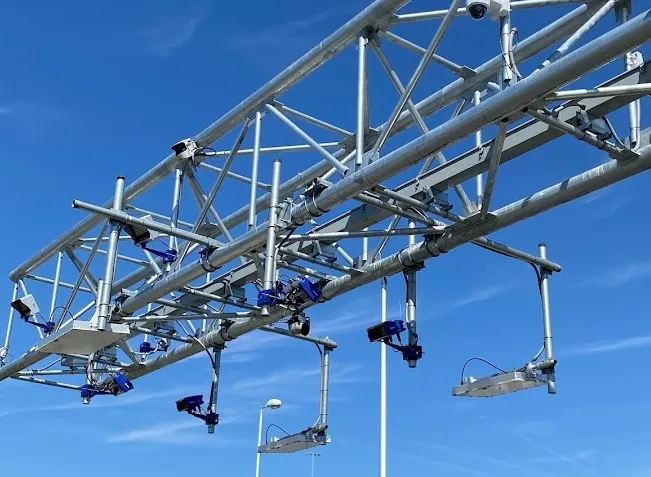
New York City's congestion charging scheme - which was put on hold earlier this year by New York state governor Kathy Hochul - is now back on the agenda.
As New York City Metropolitan Transportation Authority (MTA) puts it: "The Central Business District Tolling Program has been unpaused."
The MTA board and Federal Highway Administration still need to officially approve the scheme - whose purpose is to reduce congestion, improve air quality and provide funds for public transportation.
From 5 January 2025, the proposed daily charge will be $9 to enter the congestion charge zone which covers parts of Manhattan - down from the $15 which was originally proposed.
Hochul says that the 40% decrease "saves an average daily commuter $1,500 per year".
"Lower-income New Yorkers will see even more savings: a 50% discount after the 10th toll of the month. If it's after 9pm, the toll will be reduced further."
Not everyone agrees with Hochul's about-turn.
Transportation and Infrastructure Committee chairman Sam Graves, and New Jersey governor Phil Murphy, are particularly unimpressed.
“President-elect Trump has made it clear that he does not support this congestion pricing scheme, and the rush to institute it before he can take office is a blatantly political move," Graves wrote in a statement.
"This calculated decision flies in the face of the message Americans just sent, and my committee will consider all options to conduct the necessary oversight of this issue as we move forward.”
Meanwhile, Murphy wrote: “I am firmly opposed to any attempt to force through a congestion pricing proposal in the final months of the Biden Administration. All of us need to listen to the message that voters across America sent last Tuesday, which is that the vast majority of Americans are experiencing severe economic strains and still feeling the effects of inflation. There could not be a worse time to impose a new $9 toll on individuals who are traveling into downtown Manhattan for work, school, or leisure."
On the X social media platform, Hochul wrote: "New York is moving forward with congestion pricing & a plan that strengthens public transit while putting commuters first."
"This lower toll allows us to accomplish all the goals of congestion pricing: modern signals, the Second Avenue subway, new electric buses, elevators, improvements for @MetroNorth [Metro-North Railroad] & @LIRR [Long Island Rail Road], less gridlock, cleaner air - all while lowering costs for New Yorkers."
Hochul added: "Our plan funds the MTA, reduces congestion, & keeps millions of dollars in the pockets of commuters. I look forward to seeing it take effect this January."








